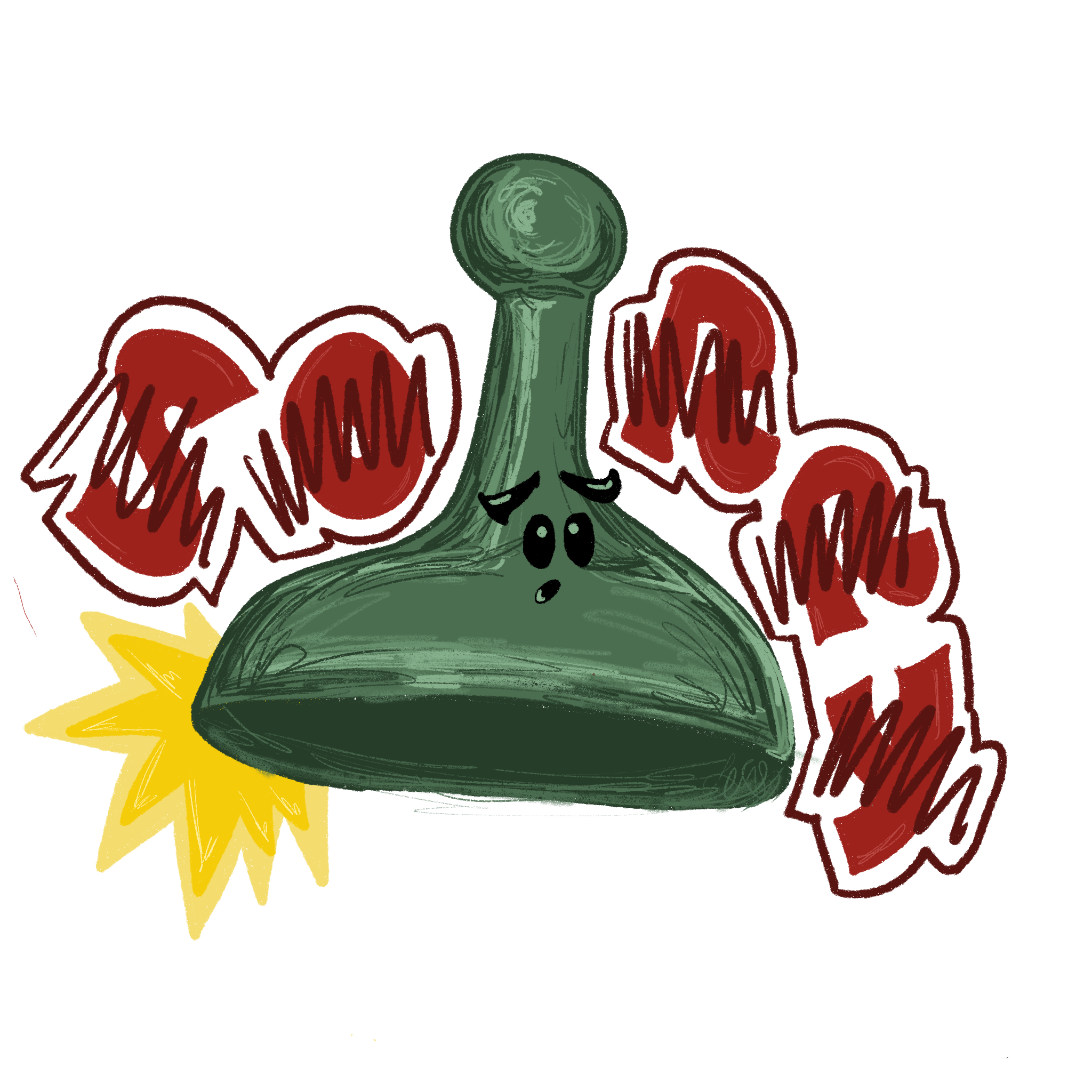A week ago, I walked into the Target snack aisle and entered a half-second faceoff with a mom and her shopping cart, the two of us blocking each other’s paths. On instinct, I sputtered, “Sorry,” and swerved away. Five minutes later, as I returned my cart to the front, I looked at the closest employee, smiled awkwardly, and whispered, “Sorry.” Looking back, I need both hands to count the number of times I apologized for my own existence that day. However, the real problem wasn’t my behavior on that particular Target run; it’s the fact that it’s emblematic of every day, and for not just me, but for society.
Unnecessarily apologizing is a part of our culture. The average American says “sorry” eight to twenty times a day, including habitual apologies we think we owe a stranger, reactionary “sorry’s” we mumble when we brush past someone, or the quick “Sorry, I just had a thought…” that preludes our class comment. We apologize for our sensitivity in expressing our emotions. We apologize for having needs. We punctuate our words with apologies, thinking nothing of it, and unknowingly face the consequences.
While saturating our lives with this seemingly polite phrase seems generally harmless, behavior and social psychologists disagree, arguing that it is detrimental to our mental health.
In her TED Talk, psychologist Maja Jovanovic suggests, “[Apologies] make us appear smaller and more timid than we really are, and they can undercut our confidence.” Each time we apologize, even if to be polite, we subconsciously assume an inferior position. We lower ourselves from equal to offender, shedding a layer of respectability. While unnoticed in the moment, habitual apologies damage our confidence over time. That inferior position becomes ingrained in our public identity and we come to believe we must apologize for existing.
The problem is that when we make habits of surrendering our self-respect, our social identities suffer. A study by the Association for Psychological Science found that women apologize significantly more than men, saying they tend to perceive themselves as harming others more frequently and severely than men. In other words, women are more likely to feel as though their presence is offensive and their minor mistakes are reprehensible.
Over apologizing is also associated with stories of trauma. Psychologist Paige Carambio says, “Apologizing for existing can actually be an after-effect of trauma, a self-preservation technique survivors may think they still need to utilize in order to protect themselves.” In essence, the tactics that once helped survivors feel secure twists into self-degrading messages. Carambio asserts that those messages become internalized. Persistent self-preservation techniques deplete self esteem and reiterate feelings of weakness and inferiority.
Personal identities, too. In her article about self-confidence with ADHD, Nicole Perkowitz writes about the personal inferiority she felt for her disorder. She remembers “covering up her differences” and feeling the need to apologize to herself and others for the daily challenges she faced. It wasn’t until she proudly owned that part of her identity and eliminated apologies from her vocabulary that she felt free and confident. It required a change in mindset and terminology to cultivate this newfound confidence. In her words, “I am who I am, and if they don’t like it, let them eat cake.”
In an already suffering culture of degraded social identities, apologies only add to the problem. Subtle power hierarchies persevere and grow: gender roles perpetuate, disability and disorder stereotypes are exacerbated, and racial and ethnic disparities endure. On a large scale, the simple, polite, and instinctual “sorry” turns into yet another hidden culprit for cultural injustices.
It sounds dramatic. No, “sorry” is not going to end the world. Instead, it’s going to operate like other offensive cultural terms and ideologies do: it will slow the transformation process and preserve the harms it symbolizes until we eliminate it.
And elimination is possible. While there is never a quick fix to widespread, decentralized societal tendencies such as this one, researchers suggest two practices to transform our apologetic habits. First, assume your value in every situation. Like Nicole, you don’t have to apologize for existing. In the smallest of circumstances—whether you’re speaking up in class, running late for an appointment, or in a faceoff with a Target mom—you deserve respect no matter what.
TED speaker Jovanovic suggests a second way to transform apologies: replacing sorry with thank you.
For example, Jovanovic suggests saying “Thank you for listening” rather than “Sorry for venting,” “Thank you for waiting” rather than “Sorry for being late,” and “Thank you for catching that” rather than “Sorry for that mistake.” This can eliminate the negative implications of apologizing while maintaining a level of politeness between individuals.
It’s important to note that apologies are not always unhealthy. Generally speaking, apologies can be helpful, respectful, and necessary if you have hurt someone or overstepped a boundary. A few simple questions to ask yourself to differentiate the circumstances are: Did my action cause the person harm? Did I have control over the outcome or the situation? Do I genuinely feel remorseful? If the answer to these questions is yes, a thoughtful apology may be healthy and helpful. However, if you posed a minor inconvenience, if you had no power over the situation, or if you’re only apologizing to be polite, you may need to rethink your vocabulary. Apologies are to repair damage, not fill the space.
We are shaped by the things we say the most, and we have unfortunately fallen into the habit of over-apologizing. This tendency not only damages our confidence but also subconsciously suppresses social identities and perpetuates cultural inequalities. While it is a battle beneath the surface, it is a battle worth fighting.
So the next time I find myself cart-to-cart with a mom in Target, I will not apologize. When I barely brush past someone’s sleeve at Einstein’s Bagels, I will not apologize. I refuse to apologize for my presence, for my emotions, or for my unavoidable mistakes. I refuse to apologize for things out of my control, and especially for my own personality. Rather, I choose confidence. I choose self-respect. Because I’m not sorry.






